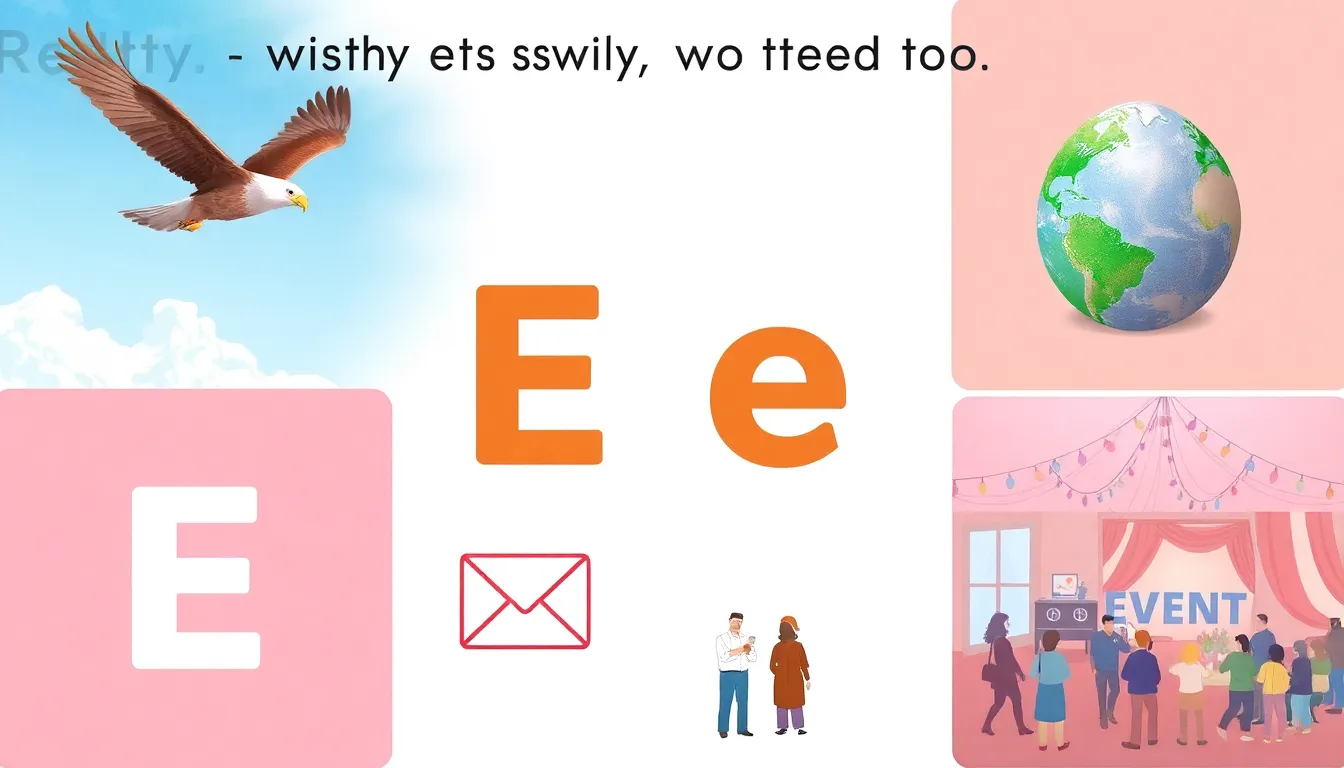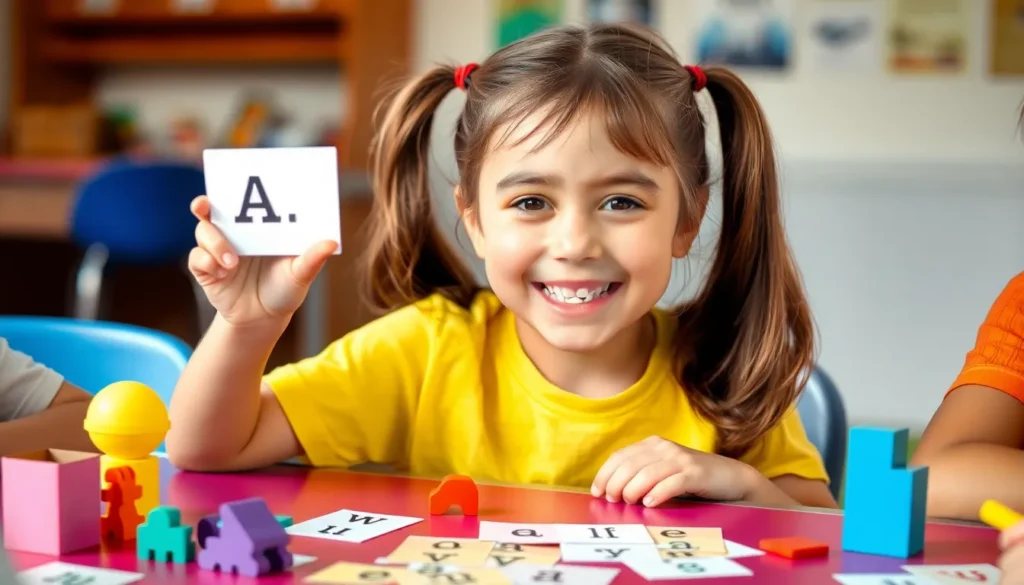Words are the building blocks of communication, and some letters make that task easier than others. The letter “E” is particularly rich with simple yet powerful words that can enhance vocabulary and improve language skills. From everyday objects to common actions, words starting with “E” are not only easy to remember but also versatile in their use.
Exploring these easy words can be a fun way to engage children in learning or to enrich one’s own vocabulary. Whether for writing, speaking, or playing word games, knowing a variety of “E” words can open up new avenues of expression. Let’s dive into a selection of easy words that start with “E” and discover how they can add flair to everyday conversations.
Table of Contents
ToggleEasy Words That Start With E
Words that begin with “E” offer a variety of simple, effective options. Here are easy words starting with “E” that can enrich vocabulary:
- Eagle: A bird of prey known for its keen eyesight and majestic flight.
- Earth: The planet we inhabit, known for its diverse ecosystems and life forms.
- Easy: Something that involves little difficulty, often used to describe tasks or skills.
- Echo: A sound that reflects off a surface and is heard again.
- Edge: The border or margin of something, like a shape or an area.
- Egg: A common food item, typically oval, containing an embryo in early development.
- Email: A method of exchanging messages over the internet, widely used in communication.
- Empty: Lacking contents; without anything inside.
- Event: An occurrence or happening, often planned or scheduled.
- Even: Used to indicate equality or consistency.
These words provide a solid foundation for building language skills, useful for conversations, writing, and engaging in word games.
Categories of Easy Words

Easy words that start with “E” fall into various categories, enhancing vocabulary through structured learning. The main categories include common nouns and adjectives.
Common Nouns
Common nouns are fundamental components of language, representing tangible objects or concepts. Here are some easy “E” common nouns:
- eagle: A large bird of prey known for its strength and keen eyesight.
- earth: The planet we inhabit, known for its diverse ecosystems.
- egg: A round or oval reproductive structure laid by birds and reptiles.
- email: A method of exchanging digital messages over the internet.
- event: An occurrence or happening, often planned or organized.
Adjectives
Adjectives describe qualities and characteristics, adding depth to language. Here are some easy “E” adjectives:
- easy: Simple to understand or do, requiring minimal effort.
- empty: Containing nothing; devoid of content.
- even: Equal in degree or extent; flat or smooth.
- eager: Enthusiastic and ready to do something; showing keen interest.
These categories of easy words significantly contribute to language skills, making communication clearer and more expressive.
The Importance of Learning Easy Words
Learning easy words enhances vocabulary development and language fluency. Easy words provide individuals with the confidence to express themselves clearly. Using simple terms like those starting with the letter “E” allows for more effective communication, especially for beginners or young learners.
Building a strong foundation with easy words aids in the comprehension of more complex vocabulary. Individuals who grasp the meanings of basic words can often understand difficult phrases and concepts more easily. For example, familiarity with simple nouns and adjectives strengthens overall language skills and increases conversational ability.
Easy words also enrich writing styles and speech. Simple yet powerful terms can make writing more accessible and engaging. They are particularly beneficial in educational settings, where clear communication is crucial for learning.
Additionally, easy words facilitate participation in word games and activities. Mastering basic vocabulary increases competitiveness in games and enhances enjoyment. Engaging with simple words fosters creativity and encourages exploration of new ideas, leading to a lifelong love of language.
Fun Activities to Practice Easy Words That Start With E
Engaging in fun activities enhances learning and retention of easy words that start with “E.” These activities can be tailored to different age groups and learning environments, making vocabulary acquisition enjoyable.
Word Games
Word games offer stimulating ways to practice “E” words. Popular options include:
- Scrabble: Players create words on a game board. Learning common “E” words increases scoring potential.
- Bingo: Customize bingo cards with easy “E” words. Players listen for words called out and mark them on their cards.
- Crossword Puzzles: Fill in the blanks using “E” words. This challenges participants to recall and spell words correctly.
Engaging in these games strengthens vocabulary while fostering friendly competition among players.
Flashcards
Flashcards serve as effective educational tools for practicing “E” words. They assist in visual learning and retention. To create flashcards:
- Word on One Side: Write an easy “E” word, such as “eagle” or “empty.”
- Definition or Picture on the Other Side: Include a brief definition or an illustration that represents the word.
Using flashcards, learners can quiz themselves or work with a partner to reinforce knowledge. Regularly reviewing these cards enhances memory retention and boosts confidence in using “E” words.
Exploring easy words that start with “E” opens up a world of possibilities for enhancing language skills. These words not only enrich vocabulary but also boost confidence in communication. By incorporating simple terms into everyday conversations, learners can express themselves more effectively and engage in meaningful interactions.
Engaging activities like word games and flashcards make mastering these words enjoyable and effective. As individuals practice and play, they’ll find that their language fluency improves, paving the way for more complex vocabulary in the future. Embracing the power of “E” words can truly transform the way one communicates and connects with others.



